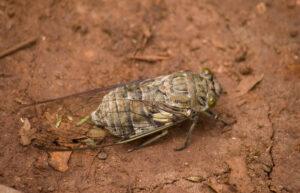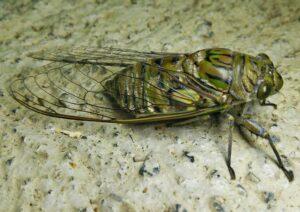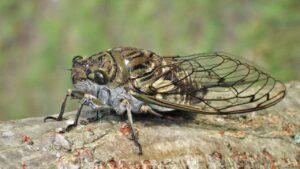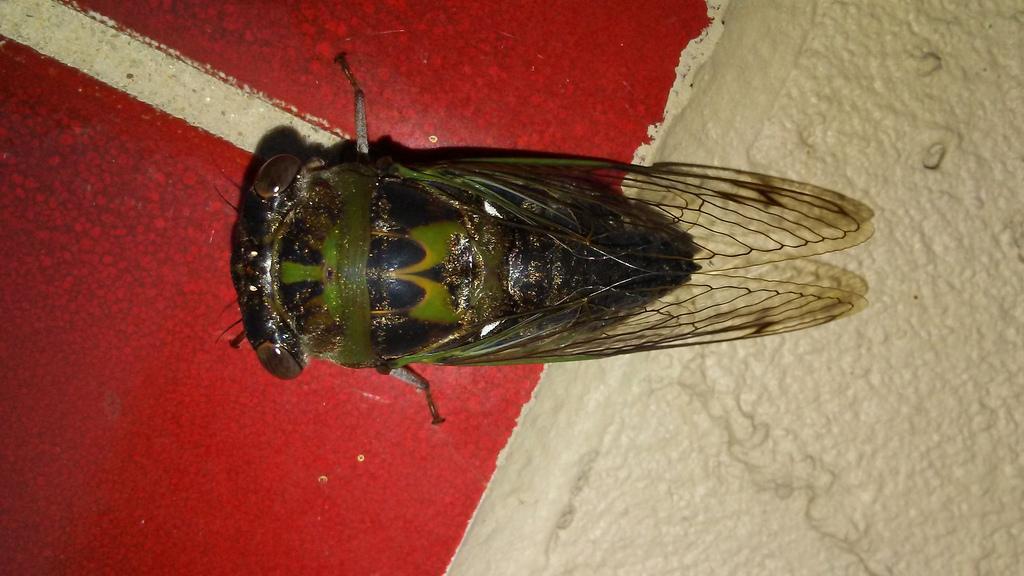Giant Cicada (Quesada gigas)
Updated on
17/11/2022The giant cicada, also known as coyoyo, coyuyo, and chichara grande is the second biggest North American cicada. It is the cicada with the broadest range in the Western Hemisphere. Endemic to South, Central, and North America, the insect has a shrill song.
Scientific Classification
- Class:Insecta
- Order:Hemiptera
- Family:Cicadidae
- Tribe:Hyantiini
- Genus:Quesada
- Species:Q. gigas
Conservation Status
Description
The insects have black, brown, and green camo patterns. Their eye color is brown, and pronotal collar color is brown to green. They usually stay in one place at low density but are mobile at high density.
Distribution: From central Texas southwards to Mina Clavero, Argentina.

Habitat: Brushlands, forest parks, cloud forests, and tropical rain forests. It can live in a wide variety of environments.
Do They Bite/Sting: No.
Lifespan: 13-17 years.
Predators: Cicada killer wasps, squirrels, cats, dogs, fish, turtles, and spiders
Behavior and Characteristics
Diet
It feeds on a wide range of plant families.
Song
Giant cicadas have a remarkable loud and distinct sound that resembles a whistle, alarm, or gas escaping from a pressure release valve. They sing mainly at dusk and less frequently at dawn in central Texas. Further south, it sings all day and sometimes through the night. However, there is no variation in its song throughout its range. The males call 2-3 times before flying off to another place. They don’t need to move their body during their call. The adults sing from June to July. The ones in southern Texas, however, sing from April to October.
Life Cycle
1. Immature Stage
The females lay eggs that hatch into immature giant cicadas. They spend at least 4 years underground before turning into adults. Tree roots, especially those of Huisache or other leguminous plants, form their diet.
2. Adult Stage
The adults emerge between April to October in south Texas and from June to July in central Texas.
Source
inaturalist.ca, ecoregistros.org, ecoregistros.org







